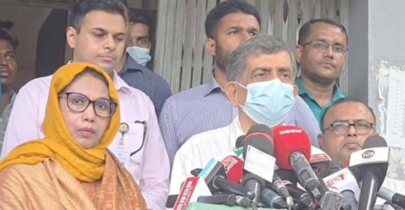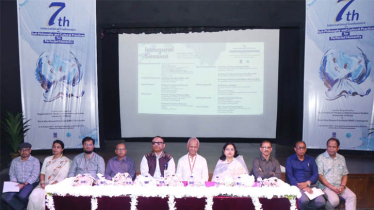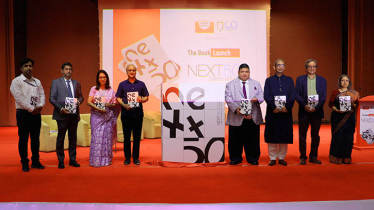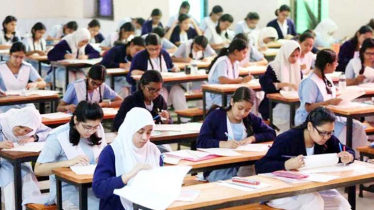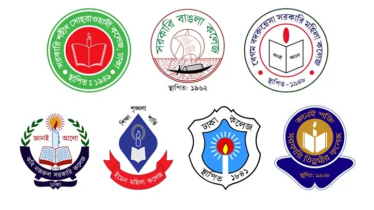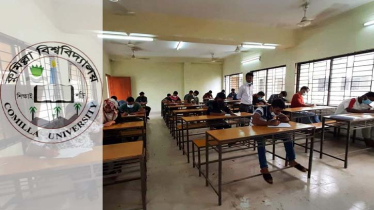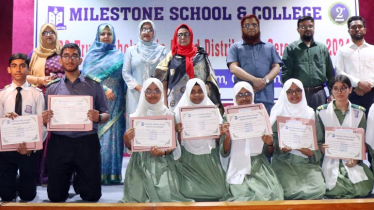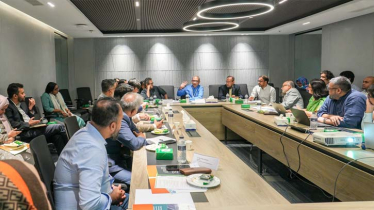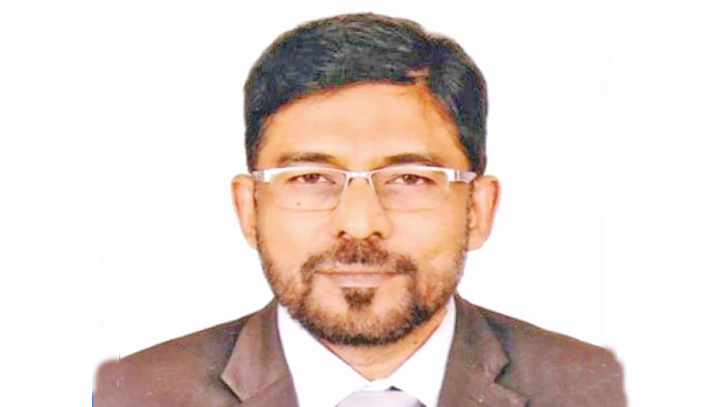
Photo : Courtesy
Northern University of Business and Technology Khulna (NUBT), a private university in Bangladesh, is affiliated with the University Grants Commission. As the first specialised private university established in the southwest of Bangladesh, NUBT has focused on improving the quality of education since its inception, leading to increased recognition across the country. In an exclusive interview with The Daily Messenger, Dr. Md. Shah Alam, the Registrar at NUBT, shared about the university’s mission, vision, and overall activities in advancing education in the country.
The Daily Messenger : Please tell us about the Northern University of Business and Technology Khulna.
Dr. Md. Shah Alam : The Northern University of Business and Technology Khulna received approval in December 2015, and academic activities commenced in 2016. The university's academic journey began with the approval of a total of nine departments. Since its inception, with a focus on enhancing the quality of education, the university's name has been increasingly recognised across the country. Students from different parts of Bangladesh are enrolling at Northern University, expressing their interest in studies. Our teachers impart lessons to students with utmost sincerity, skill, and competence. When teachers from various universities visit our institution, they express great praise after inquiring about our university education. Several renowned teachers from Khulna University and Khulna University of Engineering and Technology (KUET) also serve as visiting faculties in our university.
Messenger : Today's students are more technology-dependent. New technologies are being added day by day. How beneficial do you think this reliance on technology is for students?
Dr. Alam : The contemporary world revolves around information and technology. It is true that students these days have become more dependent on technology. A technology-based education system has advantages as well as disadvantages. Teachers can provide proper guidance to students on how to use technology and utilise it for academic purposes. Society and the state also have many responsibilities in this regard. While technology contributes to our progress, digital addiction also poses a risk to students' education. But overall, technology is undoubtedly a boon.
Messenger : How is your university playing a role in research and innovation?
Dr. Alam : The strength of the university depends on its research. Essentially, research serves as the lifeblood of the university. The level of knowledge university students acquire, their ability to innovate, and their quality all depend on the university's research. The top-ranked universities in today's world have built their positions primarily on research.
Our university also has a research group directed by Professor Dr. Anwarul Haque Joarder. We also have a university journal. Additionally, many teachers here are conducting research in various sectors on their initiative. Moreover, the university has a plan to establish a research centre with our teachers. We believe that teachers can enhance their academic activities through this.
Messenger : What are your plans for the university in 2024?
Dr. Alam : The year 2024 is expected to be a milestone for us, Inshallah. We have already completed the first floor of the academic building of our permanent campus, and the second floor is in progress. We hope to shift some departments to the permanent campus by next April. After that, all the departments will be shifted to the permanent campus gradually within this year. It is expected that the quality of education in the permanent campus will increase.
The plan for 2024 encompasses various initiatives, including promoting healthy cultural practices, sports, and co-educational activities.
Messenger : Many students of our country are migrating abroad for higher education. Is the quality of our education still far behind?
Dr. Alam : I don't think our standard of education is far behind. Our teachers and students in various educational institutions abroad are earning fame for the country. A large number of our students are studying abroad, and we have also granted study leave to many of our teachers for Ph.D. Our students have obtained permission to study in different universities, and they are performing well.
Messenger : What should we do if students are not able to enter the desired workplace after their studies?
Dr. Alam : Everyone's target is to enter the workplace after completing their education. Workplace success is associated with better educational success. The more students can improve their skills alongside their studies, the more open the workplace will be for them. They will get more benefits. Every department of our university is job-oriented. Our students are getting good employment opportunities by studying here. We run various programmes from time to time on behalf of the university to prepare our students for improved career placement.
Messenger : Where do you want to see your university in five years?
Dr. Alam : In the long term, we have a plan to make our position known globally. But in the next five years, we dream of making it one of the model universities in the country. Efforts are underway to propel the university forward, blending knowledge, practical education, and technology. We have conducted educational programs with the aim that our university will uniquely contribute to research in national development.
Messenger/Fameema

